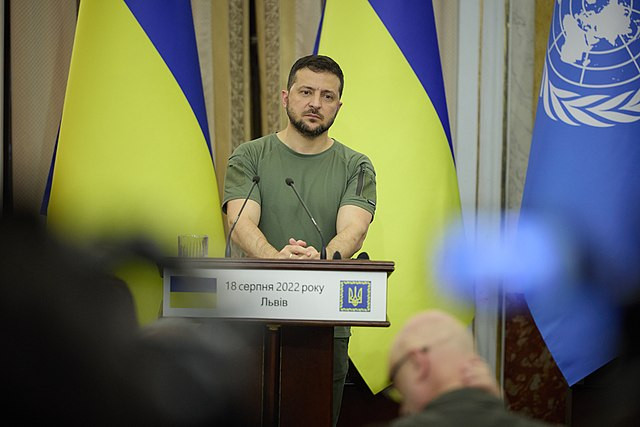The United States voted against a United Nations General Assembly resolution condemning Russia's invasion of Ukraine on Monday, aligning with Moscow in a dramatic reversal of longstanding U.S. foreign policy. The resolution, drafted by Ukraine and the European Union, was adopted with 93 votes in favor, while the U.S., Russia, Belarus, and North Korea were among the 18 nations that opposed it. The vote underscored a growing rift between Washington and its European allies as the Trump administration pursues direct negotiations with Russian President Vladimir Putin to end the war.
The resolution described Russia as the aggressor and called for the complete withdrawal of its troops from Ukraine. In contrast, the U.S. introduced a separate proposal that omitted any mention of Russian aggression and focused instead on urging a vague "swift end to the conflict." Ambassador Dorothy Shea, the U.S. chargé d'affaires at the UN, defended the administration's approach, stating, "A resolution focused on one, simple idea: ending the war. A path to peace is possible."
Trump later declared on his social media platform that he was engaged in "serious discussions with President Vladimir Putin of Russia concerning the ending of the War, and also major Economic Development transactions which will take place between the United States and Russia." His administration has been pressuring Ukraine to sign a resource extraction deal that would grant the U.S. access to Ukraine's vast mineral and rare-earth reserves as a means of offsetting prior American aid.
European leaders reacted with alarm to Washington's shift in policy. German opposition leader Friedrich Merz described the development as a wake-up call, saying, "StrengtheningEurope as quickly as possible so that, step by step, we can really achieve independence from the USA." European Commission President Ursula von der Leyen warned that the consequences of Russia's invasion extended beyond Ukraine, stating, "The autocrats around the world are watching very carefully whether there's any impunity if you violate international borders or invade your neighbor."
French President Emmanuel Macron met with Trump in Washington on Monday, where the two discussed potential peace negotiations with Russia. Macron described the conversation as "productive," but did not elaborate on whether the U.S. had committed to further support for Ukraine. British Prime Minister Keir Starmer, who is also in Washington this week, urged that "Ukrainians' voices must be at the heart of the drive for peace," while acknowledging that Trump's approach had "changed the global conversation."
At the UN, American diplomats attempted to block the Ukrainian-backed resolution, pressuring European and Ukrainian officials over the weekend to withdraw their proposal in favor of the U.S.-drafted text. The American resolution, which initially avoided condemning Russia, was later amended to reaffirm Ukraine's territorial integrity. In response, the U.S. abstained from voting on its own resolution, further highlighting the administration's struggle to maintain coherence in its diplomatic approach.
The UN vote came amid a surge in Russian military activity, with Moscow launching its largest single drone attack of the war on Sunday, hitting Ukraine with 267 drones. The escalation has left Kyiv facing mounting pressure on the battlefield as Trump signals a willingness to negotiate directly with the Kremlin without Ukraine's involvement.
Kaja Kallas, the EU's foreign policy chief, emphasized that any agreement regarding Ukraine's future must include European and Ukrainian participation. "You can discuss whatever you want with Putin," she said. "But if it comes to Europe or Ukraine, then Ukraine and Europe also have to agree to this deal."
Trump's outreach to Moscow has raised concerns about the long-term security of NATO, with European leaders increasingly questioning whether they can rely on U.S. support. British and German officials have expressed fears that Washington's shift could weaken NATO's deterrence capabilities and embolden Russian aggression beyond Ukraine.
The diplomatic fallout from Trump's pivot toward Putin extends beyond Ukraine, as European leaders seek to reassess their defense strategies in light of Washington's evolving stance. Spanish Prime Minister Pedro Sánchez announced a €1 billion ($1.04 billion) military aid package for Ukraine, while the United Kingdom imposed new sanctions on 107 Russian entities, targeting supply chains that provide military equipment to Moscow. The EU also expanded its sanctions, adding 74 Russian vessels to its shadow fleet list and imposing new asset freezes and travel bans on 83 individuals and entities.






